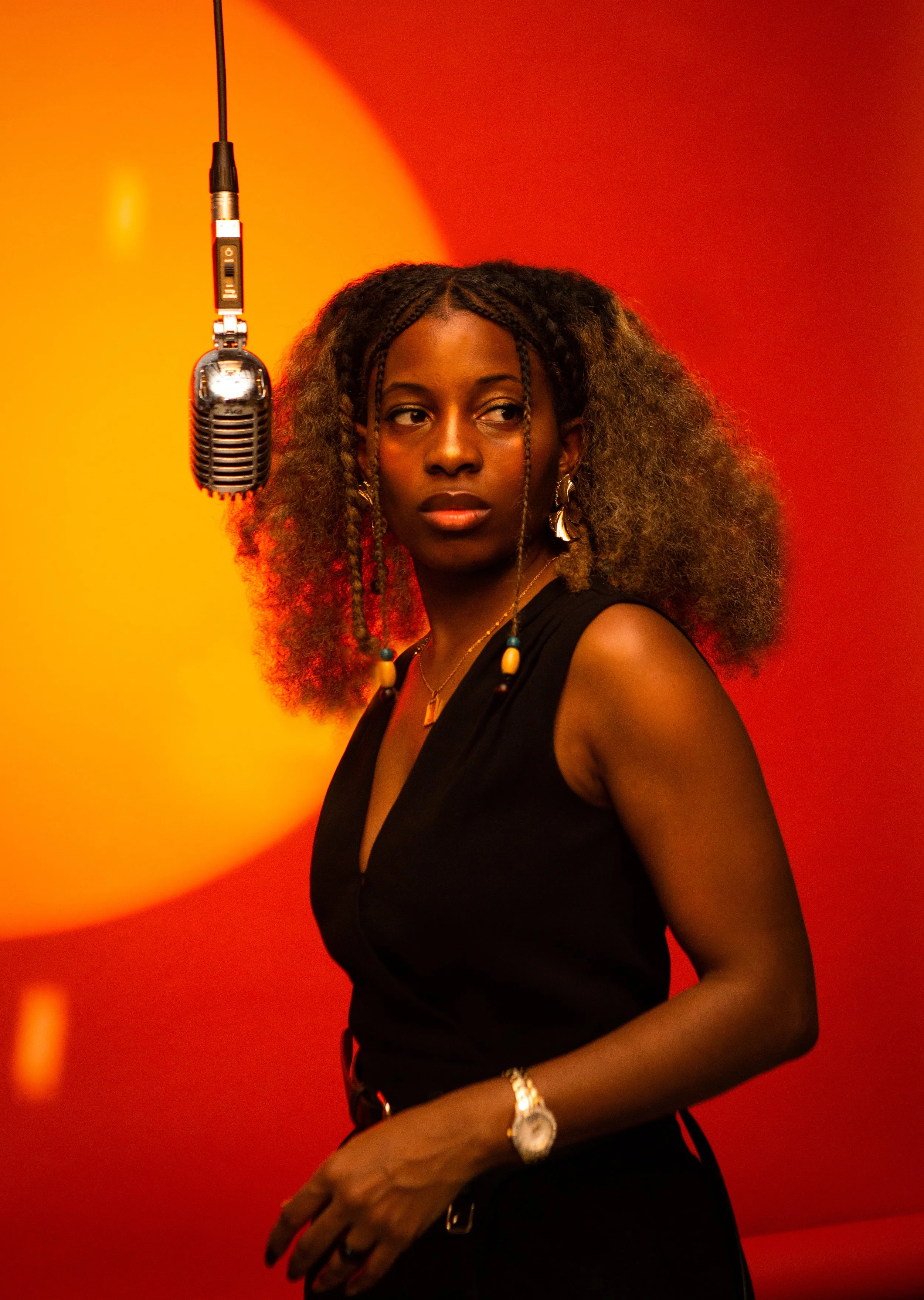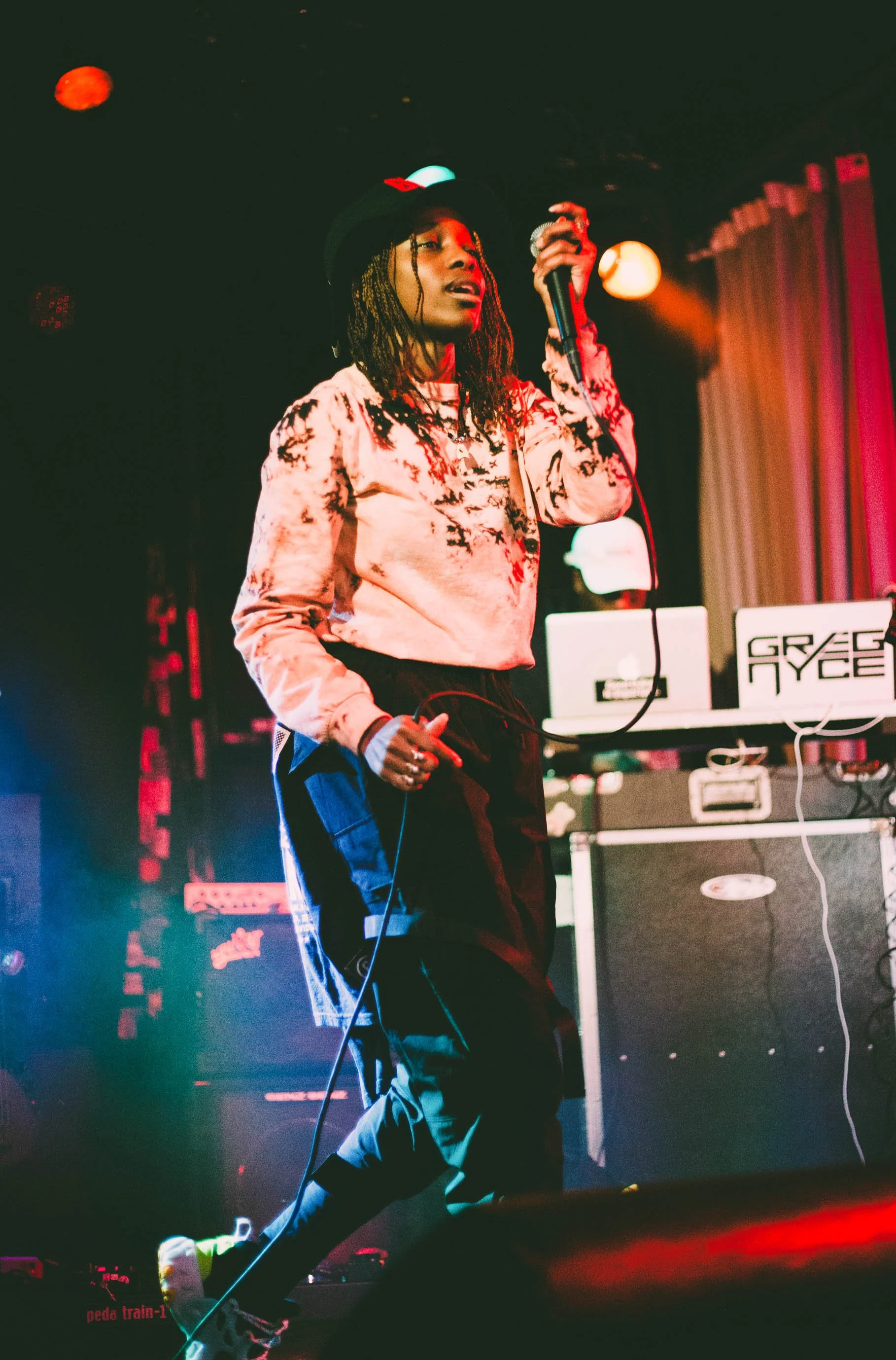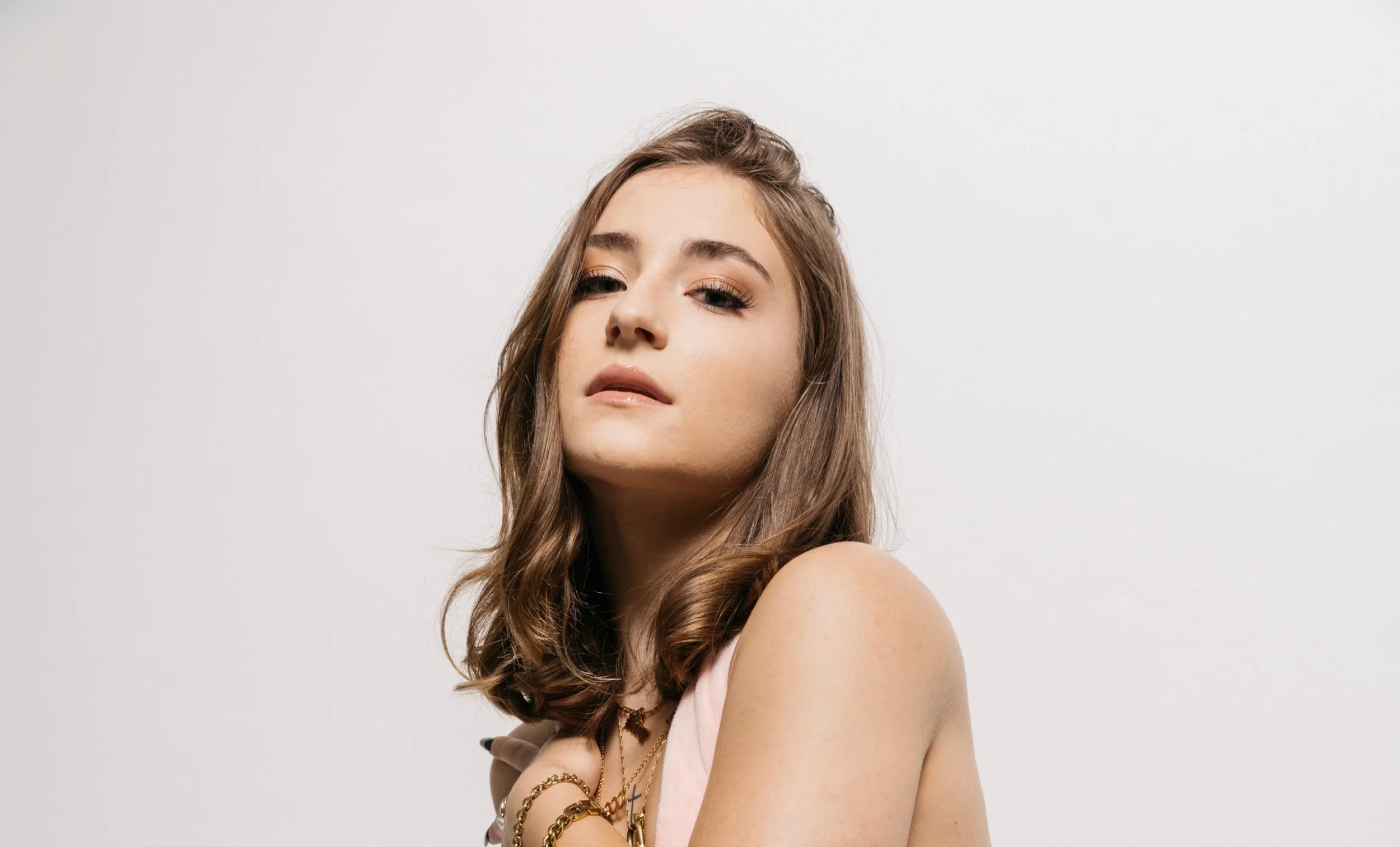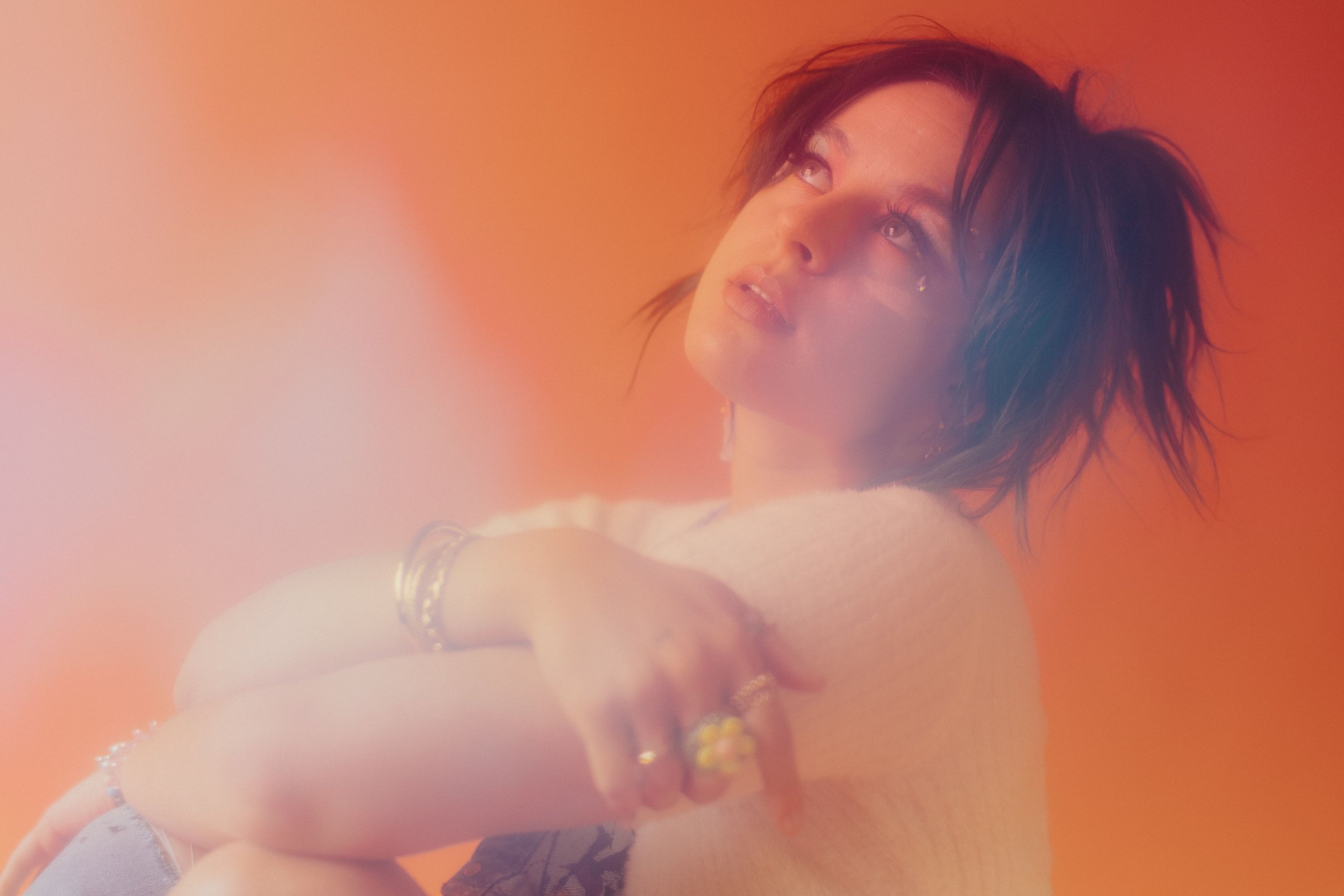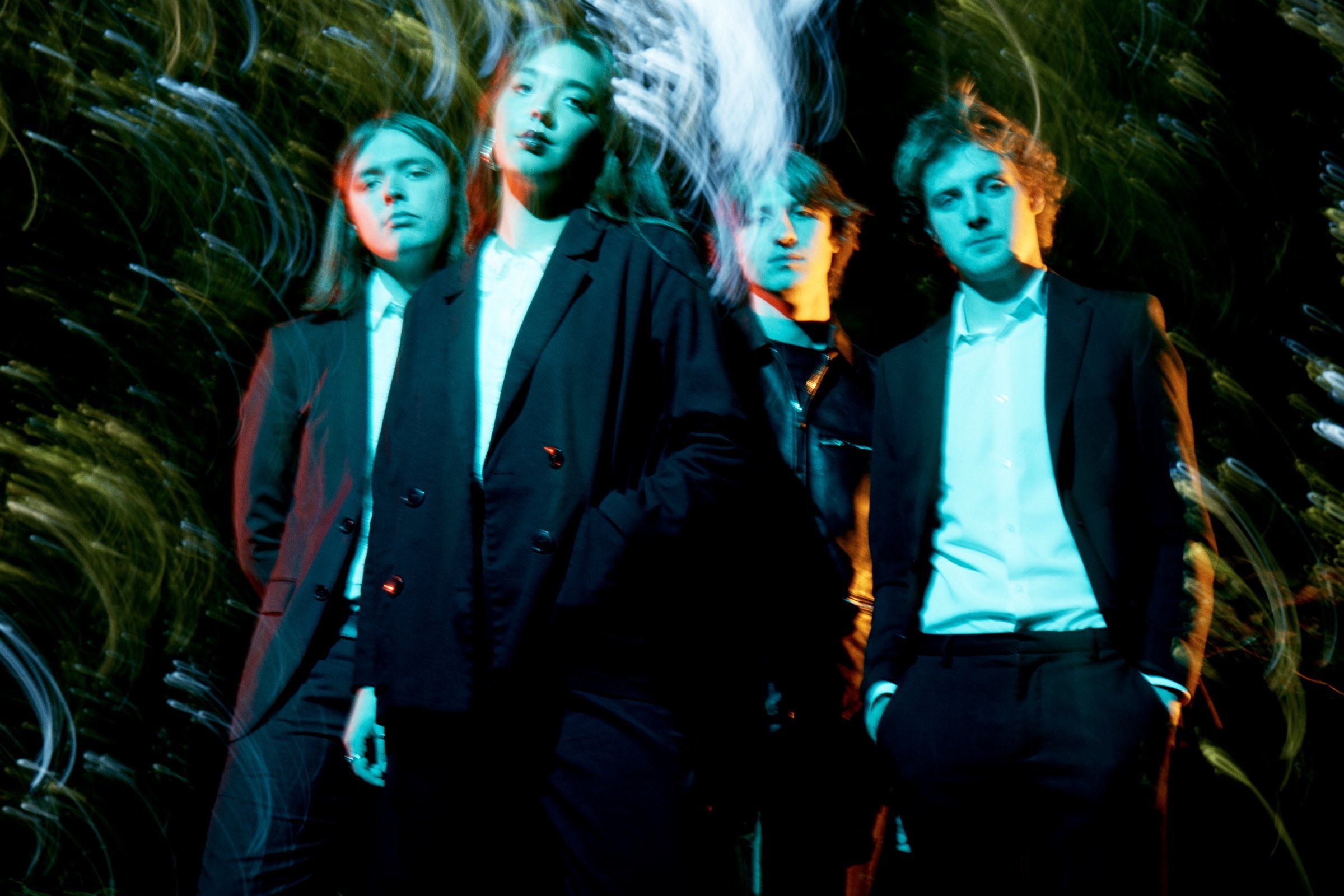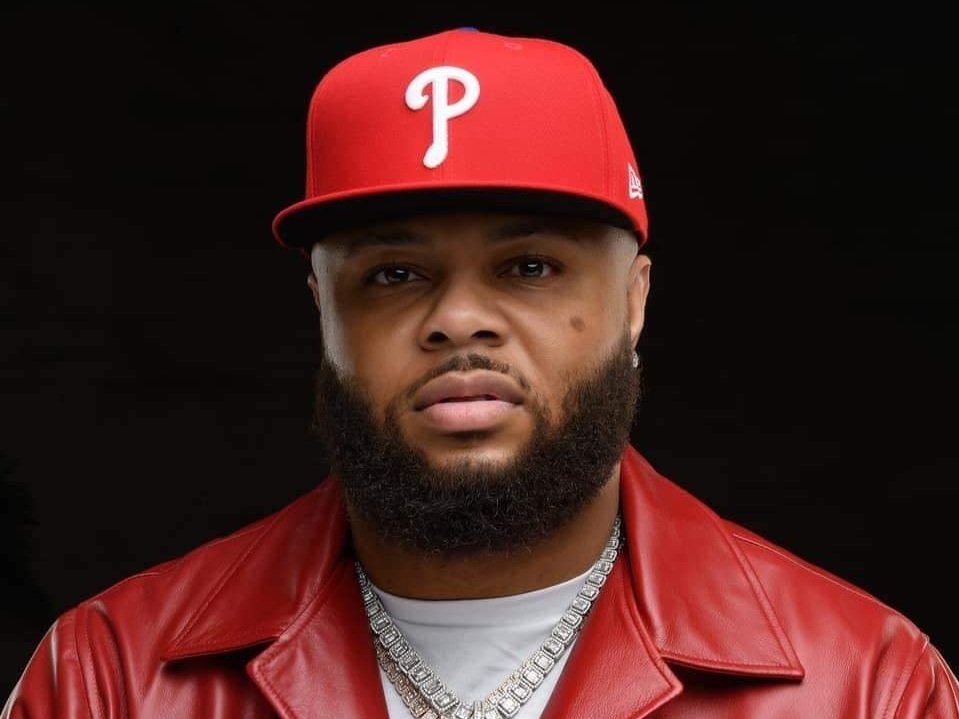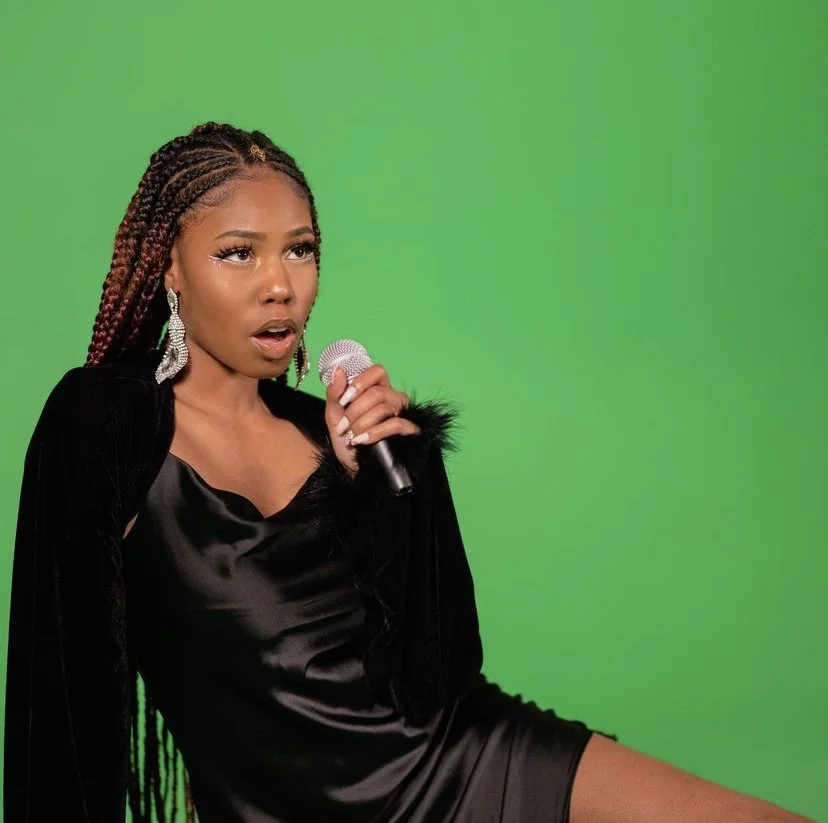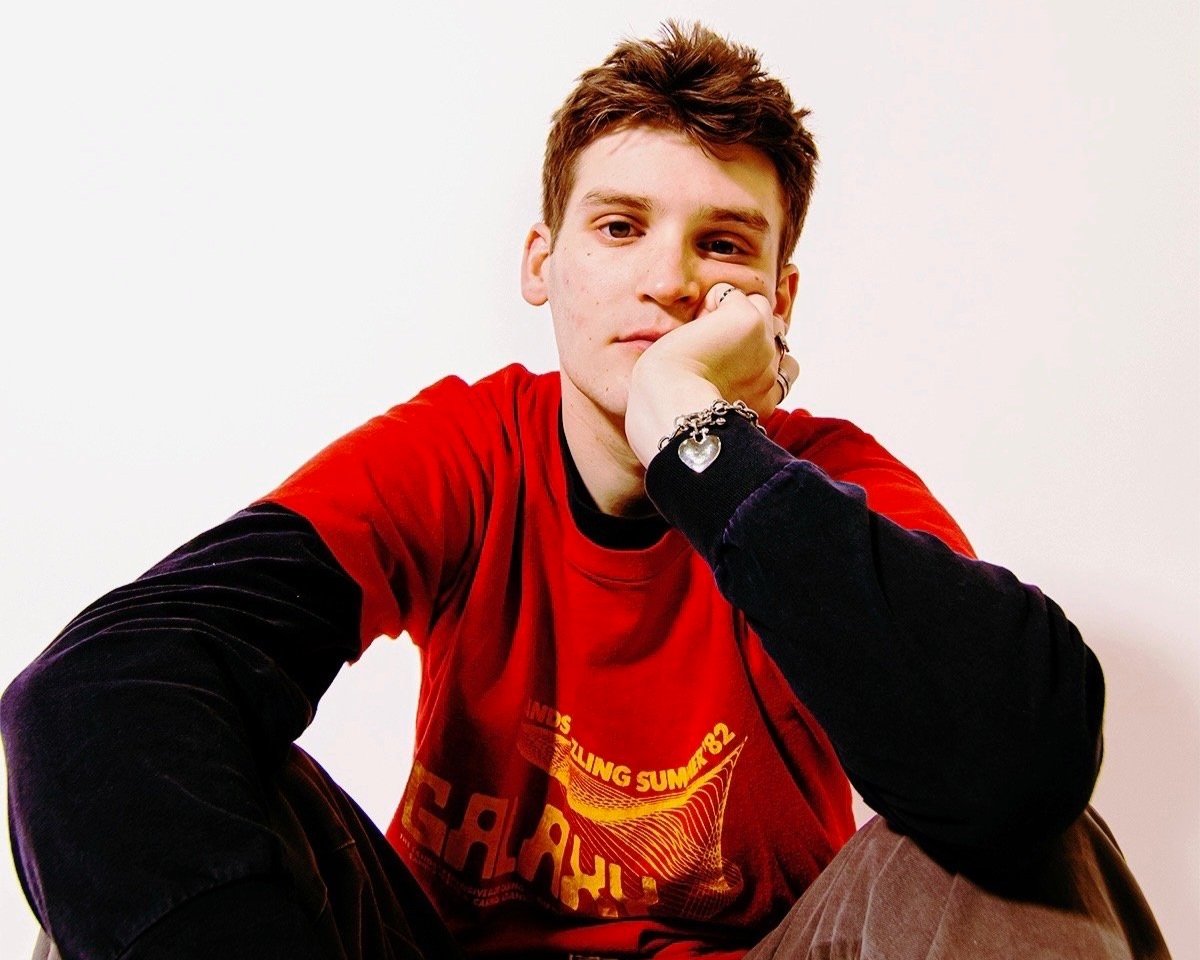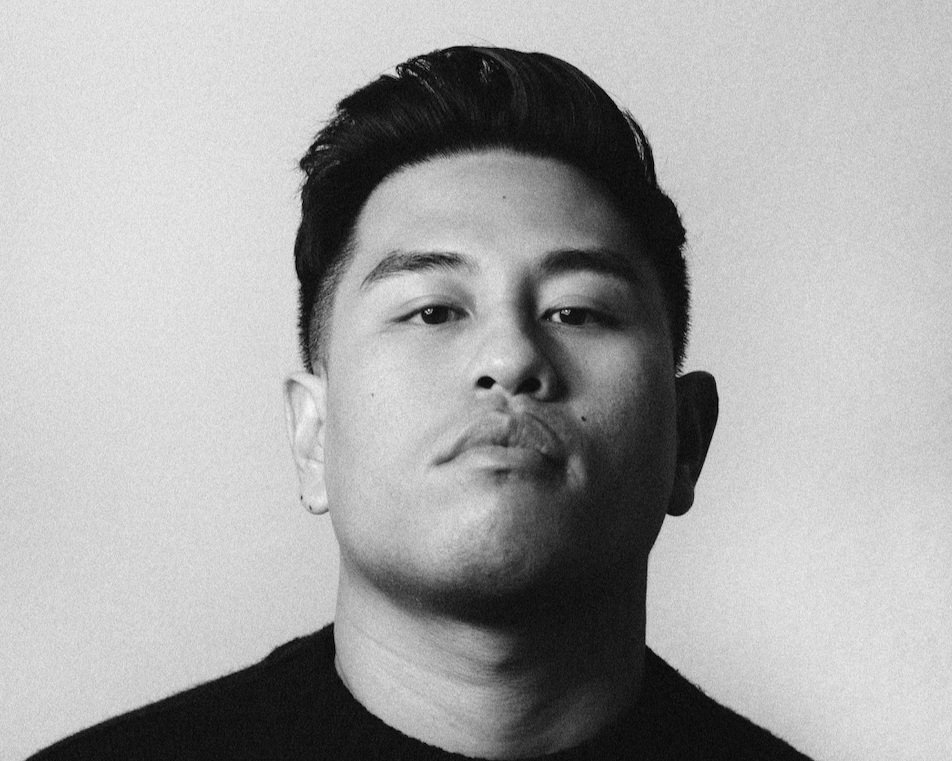Post the viral success of “Climate Change,” King Cooley is taking her music seriously.
Katrina Lenzly, also known as King Cooley, isn’t interested in the one-dimensional. Coming from the southside of Atlanta, Georgia, the recently-turned-31, multifaceted artist with a degree in graphic design blends hip-hop and neo soul sensibilities to craft her vibrant universe; an experience as much sonic as it is visual. Between preparations for upcoming EP Portals, in partnership with production duo DopeNorTeria, as well as the completion of a movie script, Cooley spoke with me about the diverse textures of her sound, feelings around collaboration, combining creative pursuits, and existing unapologetically as an artist in a corporate environment.
This interview has been lightly edited for context and clarity.
Courtesy of King Cooley
Evi: You’ve previously described yourself as a “hip-hop performing artist with a neo-soul spirit.” What does that phrase mean to you, and how would you introduce your music to someone who has never heard it before?
Cooley: I would describe my sound as nostalgic, but also progressive. My music is socially conscious. I narrate and do a lot of storytelling around socially and culturally relevant issues and ideas. And then, in terms of the sonic nature of my music, it's very soulful. There's a lot of influences from gospel music, in terms of the harmonies that I like to use. In terms of song arrangement, there's a lot of ethereal feelings. I get a lot of feedback that smokers love my music because it makes them feel very calm and just in a very chill space. Even in the more upbeat songs that I have, I think there's still a very relaxed sense of welcoming and warmth in my sound. I think that's where the neo soul spirit comes in.
Evi: You definitely don't have the energy of a newer artist, even though your Spotify uploads only go as far back as 2019. There is a lot of maturity to your music, especially on the lyrical front. So I was wondering, how long have you actually been into making music? Tell me a little bit about your background.
Cooley: I've been making music for a long time. Like rapping and, you know, since I was in elementary school, [I was] freestyling and battling other kids – that kind of thing. All the way up until maybe 2016, my music was just kind of on SoundCloud or hard drives that got lost and damaged. So music at that point was just like, “Oh, I don't really know what I'm doing.” And my manager suggested I get on this thing called Spotify. And I was like, “Eh, I don't know about that, not really interested in doing anything different. SoundCloud is where it's at.” And [my manager said] “No, everyone's listening to Spotify. You need to put your music on there.” And so I did. And immediately this song that I had released called “Climate Change” just started taking off. One day I get this email that's like, “Hey, here's your breakdown for your track ‘Climate Change.’” And I'd reached 10,000 streams, which was ridiculous. And I was like, “That's pretty good! It’s way more than I'm used to getting.” And then, as the weeks progressed, it was more and more, and then Spotify picked it up and put it on an editorial playlist. And then other people were putting it on their playlist. And, you know, here I am now! Seeing how well that song did was really motivating and exciting because I never sought to take my music career in any specific direction. And so that's when I started getting really serious about [it]. That's essentially the start of me and my digital presence.
Evi: With an artist name like King Cooley, I'm not sure whether any listener would necessarily expect to hear a feminine voice when they press play on one of your songs. So I was wondering how that artist name came about and if there's a special meaning behind it.
Cooley: I started out as “Cooley Savant.” That was my rap name for a really long time. In 2018, I was doing some random research and I came across “savantism” being potentially a problematic term for some people – I used it in more of a metaphorical sense. And I just wanted to be a little bit more conscious of my fanbase, or people who want to support me and are neurodivergent. So, I went through a process of figuring out [the name]. I kept thinking “Queen Cooley” is kind of interesting. I liked the alliteration [and] the texture of that phrase. [But] for whatever reason, when I thought about what the position of a queen is in society, it just kept coming back to assistant, or secondary-ism. And so when I thought about the women in my life that I would consider queens or authorities within their domain – like my mom, my aunts and my grandmothers – they really give king energy. They run our households, they provide, they protect. I also just love the idea that calling myself King Cooley would piss a lot of men off. And with my birth name being Katrina, it just worked too – the K and the C. So I went with King Cooley.
Evi: As of today, your most recent output has come in a series of collaborative singles, in a bit of a more upbeat direction than previous releases. Was that a conscious decision? Is this a collaborative project in the making? What was the creative process like?
Cooley: So myself and the twin production duo that I work with, DopeNorTeria, were working on an album for a sync licensing agency, and the brief that we got for that project was hip-hop/pop, [or] upbeat hip-hop – which was a clear departure from anything I've worked on before and it was a real challenge. But I had so much fun challenging myself to think lyrically, but also think in this space of fun and dance, and to simplify. So as we were working on that project, we worked on a song called “Get Down” and by the end of that session, it was so good we were like “We're not giving this away, we have to keep this.” And same thing with “Right Back”. Once we finished “Get Down”, we just wanted to follow up to that. So the idea around “Right Back” is that feeling in college, where everything is so new and you're away from your home and you go to your first college party – being back in very problematic, flirtatious spaces, and just being young and free in that world. Once we finished those first two songs, we discussed releasing like a five to six track project. So that's in the works. We're in the post production phases of that. Our third follow-up single is “Downhill,” which [has] a more chill, femme fatale feel. So “Get Down” has this very punchy lyricism, or punchy storytelling, [and] this braggadociousness to it. Then “Right Back” is in this fun, playful space. “Downhill” is a real downer. And then, our other two tracks have a completely other storyline. We're just experimenting. There's some things that the twins have done production wise that they've never tried before and I wanted to encourage them, like “Let's try some ridiculous things and see if they work,” and then same thing with me on the pen side.
Evi: On that topic, are you someone who, as an artist, finds collaboration to be more fruitful, or are you sometimes hesitant to work with other people? Some artists prefer to have full control of their output, while others thrive on the exchange of ideas. How do you approach collaboration in your artistry?
Cooley: It's starting to depend. I'm realizing that the way that I typically like to write is in a silo. Even as a designer, I typically like to work in a silo. I've come to realize, as I'm maturing in my artistry, that there are some aspects of sound or production that I just can't access. I don't have the life experience to access those things. So in that maturity, I've been a lot more comfortable just reaching out to people that I know can get there. I'm not as hesitant anymore to just tell people, “Hey, I really love your sound. Can we figure something out?”, and not afraid if what we produce isn't great. I think sometimes it's just the process of accessing something that gets you to the next thing – and it doesn't always have to be about the productivity of the session, or the project. So with the twins – [whom] I've also known since I was in high school – I know what their ear is, and I love the way that they think. I trust [my collaborators] a lot. It's a lot of giving up and having faith in other people to just do what they do – and they have faith in you, and it feels a lot less pressure-filled when we're just having fun like that.
Evi: Since you also mentioned it, as a writer as well, I'm always curious about how people write. I'm sure crafting song lyrics is quite different from essay or article writing. But, generally, what is your preferred headspace to get into? Do you make a habit of it, or are you more of a spontaneous, short burst type of writer?
Cooley: I used to be a short burst writer, just waiting for inspiration to come to me, and that used to maybe be in the form of watching a really good film and being inspired. I love being able to see the visual and then writing around a piece of art, or whatever that is. But a few years ago, I was challenged to just write every day. There's a few writers who mention that – like screenwriters – and I also have a book called “The Artist’s Way;” the author explains [that] writing has to be a part of your daily culture. I [first] thought, “Oh my Gosh, homework.” But truly, when you get out of the habit of it, it's so hard to not feel pressured when you sit back down to do any sort of creative writing. So I started making a habit of just coming up with ideas throughout the day, or on a drive. Typically, if I don't already have a song idea in my phone, I'll beatbox on my phone, or I'll write down a song idea about [this or that]. If I don't already have that available, I’ll sit down and actually listen to the music and see what [it’s] actually doing – what the bass is doing, what the piano line is doing, what the harmonies are saying. And then try to match my storytelling to whatever I think the producer intended for the production. So that's been really nice. Now that I'm in the habit of writing more, I also don't take as long to write, which is great. It used to take me days – there are a few artists that would say “Yeah, Cooley is going to take like a month to finish this.” Now I’m in the habit and can be a lot more effective when it comes to putting pen to paper.
Evi: You also have a degree in graphic design, and are working as an art director which was so interesting to find out. If I'm correct, you have also created your own visuals for your music. Could you tell me a little bit more about the experience of curating an image for yourself as an artist? Are you very particular with it?
Cooley: Because I work in marketing, it's hard to not brand a project or myself, because I know the power of branding. Or at least, you know, I've been brainwashed to think that there's a lot of power to branding. So yeah, colors [and] making sure that the visuals are distinguishable for people who are following, [for example], a campaign rollout is important to me. I go through the typical design process of sketching out ideas, relistening to a song, and reapplying whatever those themes are. I have a lot more fun designing for my own music than I do actual work. So it's helpful, because it keeps me in practice and keeps me doing stuff that's actually interesting, and experiential, and experimental than what I do on my 9-5.
Evi: Do you feel that the visual aspect to music is getting more and more important in the digital age – needing to have that visual or collective picture that represents your sound, because it's such a clever cue for people to remember you?
Cooley: Υeah, especially in the social age where people are seeing before they listen, right? Whatever you're sharing has to cut through the noise. And sometimes that's really tough, because everyone's gotten really great at design and now you have Canva, and you have all of the ability to design. So then, you have to add other elements. For instance, for a long time I was like, “Okay, the album art has to be amazing,” but I wasn't necessarily putting a lot of effort into the rollout – like the pre-release graphics, the release day graphics, the post-release graphics – making sure things are fresh every time someone’s seeing it. In the last few months, I've been getting into motion graphics, like animation, and figuring out ways to catch people's attention as they're scrolling through.
On the business side, Cooley is done compromising. The initial wish to keep her music ventures and professional life separate – influenced by arbitrary parental, or educational ideologies – seemed to prove difficult to uphold when, as “Climate Change” was garnering attention, she was recognized by her boss as the artist behind the track. Anxiety quickly turned into relief when, instead of getting in trouble for her parallel musicianship, she was asked to perform for the team meeting at the end of that year.
Cooley: That experience started my journey in public speaking about being a multi-hyphenate artist and how, when we show up as our full, authentic selves into the workplace, it lightens us up creatively and personally. I’m a huge advocate for transparency – for creatives to just show up as their full selves wherever they go – because you never know who’s watching, who can be inspired, or can also shift your life in a different direction, but also, it’s nice to not have to explain to someone [that] “Hey, at 6 o'clock I’m going to go record” and them being supportive of that. It’s really freeing.
Evi: Do you feel like the corporate side is opening up to creativity in that sense?
Cooley: I think that there are still people who don’t understand how to show up as themselves authentically, and some people who get intimidated by people who are unashamed to move into spaces confidently as their full selves and that creates a little bit of friction. But the people who matter, or are good leaders, don’t do that. I try to look for leaders I won’t have to hide from, because there is enough hiding that we all have to do anyway. To have to do that in my creative job is a no-go. Whenever I’m interviewing somewhere and they’re like “We don’t really have a flexible schedule”, [I’m like] “That’s not for me then!”.
Courtesy of King Cooley
Evi: There are definitely strong messages and some hard-hitting moments amidst your lyricism. But is there a specific message or feeling that you believe is important for your audience to receive when listening to your music, or a mission that goes along with it?
Cooley: I like my music to spark thought. Social conversation – thoughts and conversation about how we view society and the hypocrisies of our society. [In] a lot of my songs I like to delve into very niche ideas about femininity, or the relationship between men and women. I like to dive into actual, real, complicated feelings or experiences. There’s a feature that I released not long ago, where my verse was about this person who’s super positive and excited, but the toxic positivity that comes with trying to make it seem like everything’s okay when it’s not. I love when people say that they listen to my lyrics and they hear a line [that] they had to sit with for a period of time. Our daily society is so complicated and there is a lot of nuance in some of these “podcast topics” that you get on socials, like “Women are this, men are that,” but there’s so much more complication to the ways that we live.
Evi: Lastly, what can your fans look forward to?
Cooley: My supporters and fans can look out for the EP I mentioned. It’s called Portals. We’re doing a live recording of the songs that have been released so far – “Get Down,” “Right Back” and “Downhill.” I have my own EP that’s still in flux right now, but plans for it are still there. And then, I will be on another season of “Celebrity Game Face” with my brother, Jermaine, [which] just premiered in April – so our episode should be coming out in the next few weeks. He and I are also working on a TV show about my adoption story, so my fans can be on the lookout for that. And probably just more cool stuff! I’m excited [about] a few shows we’ll be throwing in Atlanta – myself and DopeNorTeria. So a few King Cooley-hosted events, [where] they can expect the same things that they get from my music; very personalized, experiential production.
Courtesy of King Cooley

